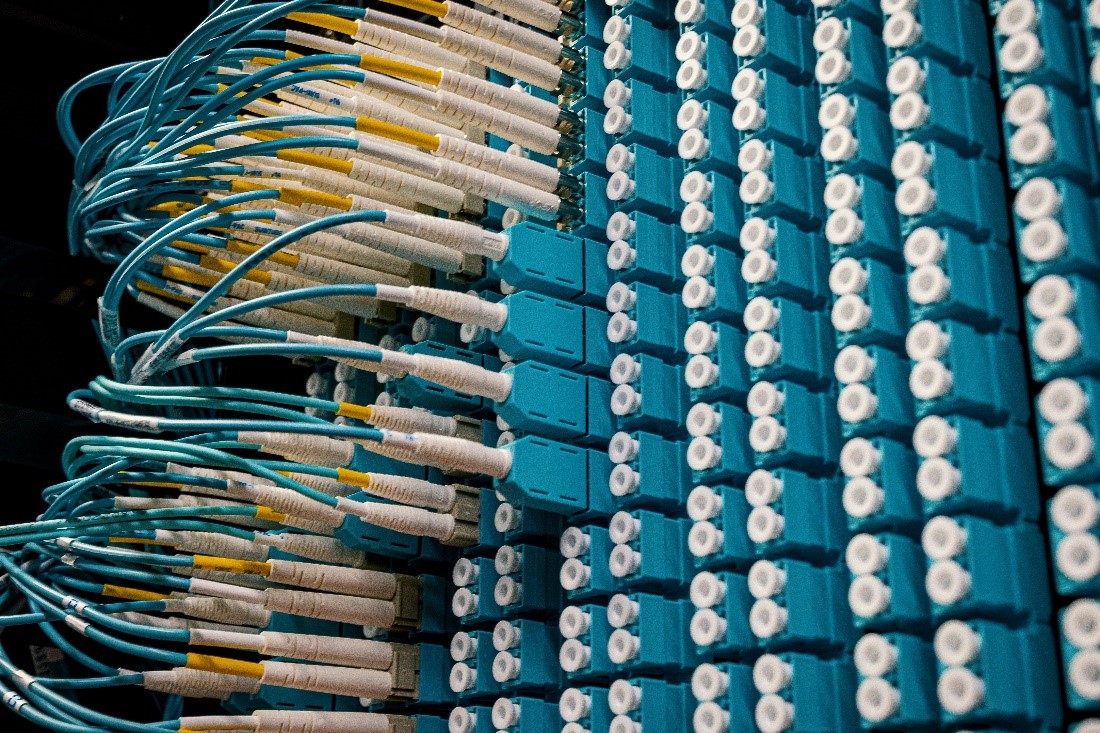What is Fiber Internet? - Discover the Ultimate Internet Connection

Discover what fiber internet is and learn more about the ultimate internet connection for lightning-fast speeds and unmatched reliability.

Discover what fiber internet is and learn more about the ultimate internet connection for lightning-fast speeds and unmatched reliability.
With shifting technologies and changing expectations due to the COVID-19 pandemic, fast, reliable internet service is more necessary than ever. Work, entertainment, and adequate communication often rely on an internet connection, and not being able to rely on your internet connection can be a headache, to say the least. With so many options available, you may wonder: What's best for me? And, maybe more specifically: What is the best option available?
The answer is different for everyone. Of course, lower costs and general availability play into what's "right," but the answer that most consider to be "the best" is "Fiber."
You might have heard of “Fiber Internet” before. And you might be reading this, saying to yourself, “How does fiber work? What is it? What’s so great about it? And how is it different from cable?”
“Fiber Optic Internet,” sometimes referred to as “Fiber,” is a form of broadband internet that uses strands of glass or plastic to transmit data using light pulses. These strands (each as thin as a single human hair) are bundled into a glass or plastic cladding to carry data across long distances at incredibly high speeds.

Fiber, though only recently available in some residential areas, has long been the backbone of the modern internet. But only through continued technological strides has it become something everyday consumers can enjoy.
Though similar to cable and DSL in what it does, the way Fiber transmits data could not be more different.
DSL and cable internet rely on electrical currents over copper wiring to transmit data. DSL operates along landline phone systems and cable along coaxial wiring laid by cable companies. Both forms of data transmission were initially designed for something else entirely, and their use for internet applications became an accidental feature. Fiber internet, on the other hand, was explicitly created with the internet in mind, using light instead of electricity to share information over significant distances at speeds much higher than copper cables and electricity can match.
As a point of comparison, DSL is the slowest of today's common connection types, with download speeds often measuring between one and ten megabits per second. Cable is faster, averaging between five and fifty megabits, with the potential to reach much higher speeds. In contrast, Fiber, the fastest of the bunch, can reach download speeds as high as 10,000 megabits per second — outperforming the other internet options, sometimes many times over.
Another benefit to Fiber is that Fiber offers much faster upload speeds than cable or DSL are capable of. Faster upload speeds mean more than just being able to upload large files. It means that real-time two-way communication works better for things like online gaming and video conferencing.

Not only is it faster, but Fiber Internet is substantially more reliable. Unfortunately, copper wiring is prone to wear and tear. It's more malleable, which can be great for some things, but for the internet, this makes it weak and more likely to be damaged. Additionally, the electrical signals that travel through it can only go so far before they weaken. Fiber optic signals, by contrast, though capable of decline, can travel significantly further before their signal has to be renewed (nearly 400 times the distance of cable). And the copper wiring used in cable and DSL, though excellent at conducting the electrical signals necessary to transmit their data, is also great at conducting other things. For example, radio waves, heat, and unintended electromagnetic signals can be common sources of interference. Though you, as the consumer, may not notice the interference when it happens, copper wire's susceptibility to it can often make for a less secure and unreliable connection.
On top of that, cable is also prone to slowdown during peak hours. Due to its structure as a shared network, users often see a significant reduction in speed during times of heavy use, even when they don't have many devices connected to their home network. Though it can sometimes match Fiber's speeds, it is often unable to do so.
Though largely considered the best internet option, Fiber Internet connections may not be for everyone. Fiber to the home is not available everywhere, as many providers only use Fiber as the backbone of their network, using coax to run the last length from the street to the house, greatly diminishing the benefits of Fiber for individual households. Many businesses already rely heavily on Fiber connections due to their massive number of users and the speeds necessary to conduct their everyday business. Some casual users may not need the benefits Fiber offers, but it would be preferable for anyone who has multiple connected devices in simultaneous use, plays online games, or works from home. In certain areas, Fiber can be more expensive than cable, and if that is the case, it’s certainly something to consider before making a decision.
In an age where internet speeds keep getting faster, Fiber technology remains the fastest, most reliable option. If Fiber providers are available in your area and it fits in your budget, there are definite benefits over other internet types. Cable may be the better option if you don't require consistently high speeds and have very few connected devices or users. After all, everyone's definition of "fast internet" is different. Cable and even DSL may be plenty for some and be more than sufficient for the light, daily usage they rely on it for. But you'll want faster speeds and a reliable solution if you have a whole family using the same home network for all their connected devices, streaming, working, gaming, and more.
If you're interested in upgrading your internet connection or just learning more about Fiber Internet options, contact us today!